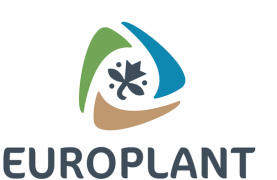Abstract
Potato growers suffer losses due to potato soft rot and blackleg caused by pectinolytic bacteria of different species. These bacteria cause yield loss during cultivation and storage, and can be transmitted to the next generations through seed tubers. The prevalence of Pectobacterium atrosepticum has decreased over the last 20 years in Europe in favour of Dickeya solani and P. carotovorum subsp. brasiliense. Twenty-six diploid interspecific Solanum hybrids, previously selected for tuber resistance to P. atrosepticum, were screened for resistance to a highly aggressive D. solani strain in terms of tuber and blackleg reaction. The bacterial strain used for inoculation was characterised by a relatively high optimal growth temperature in vitro, ranging from 33 to 35 °C. Twenty-four diploid clones did not differ in terms of tuber reaction to inoculation with this strain of bacteria in comparison with the clone USA 249, which is the somatic hybrid of S. brevidens (+) S. tuberosum with proven resistance to Pectobacterium. Seventeen clones performed significantly better in terms of blackleg resistance than the resistant potato cultivar Glada. Eleven of the selected diploids produced unreduced gametes, which allows their use in improving the resistance of tetraploid potatoes to diseases caused by bacteria of both Pectobacterium and Dickeya.














